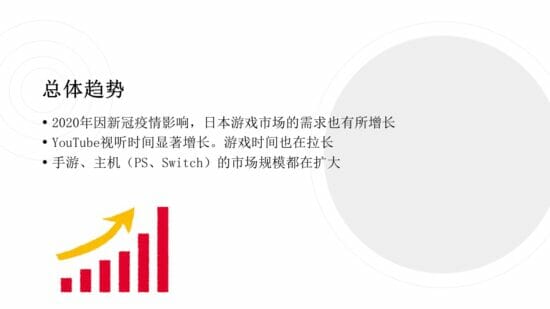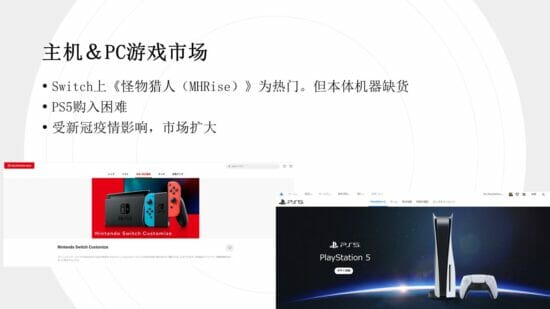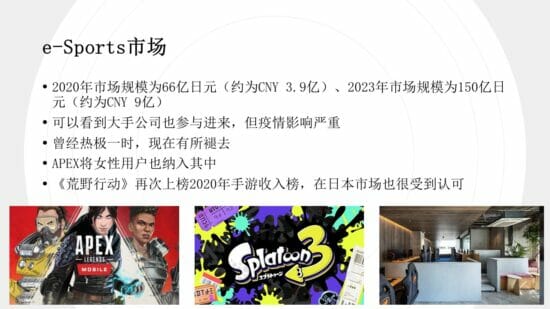On May 6, 2021, the ZOOM webinar “Webinar explaining the Japanese game market and business practices for Chinese game-related companies: Tips for approaching Japanese companies” was held.

This article provides a summary of the webinar content.
The content of the webinar can also be viewed on YouTube.
Purpose of the webinar
In recent years, game titles originating from China have become popular in Japan, and an increasing number of Chinese game companies are considering business proposals to Japanese game companies.
However, even when Chinese companies try to contact Japanese companies, there are many cases where they receive no response at all, and the inquiry simply ends.
Why doesn’t it work?
One of the reasons for this difference is the lack of understanding of the unique business practices of Japanese companies.
In this webinar, we will discuss such unique Japanese business practices along with the latest trends in the Japanese game market as of 2021.SQOOLRepresentative Kato,QooApp LimitedKengo Chu, Head of Platform & Publishing Business, gave an explanation. The two main topics are “trends in the Japanese game market” and “business practices of Japanese companies.”
About trends in the Japanese game market
First, trends in the Japanese game market from 2020 to May 2021 were explained.
In 2020, due to the spread of the new coronavirus “COVID-19” and people being asked to stay at home, sales of games for both home and mobile devices increased significantly in Japan.

Particular attention has been paid to home (consumer) game consoles. In 2020, the domestic market has grown by more than 10% compared to the previous year, 2019. It was introduced that this is the first time in three years that the home game market has grown year-on-year for both hardware and software, since 2017, when the Nintendo Switch was released.
Similarly, the mobile game market is expanding. Originally, the market was growing significantly in Japan, and 2020 has continued that trend. Particular growth was seen in large and well-known titles such as “Monster Strike,” “Fate/Grand Order,” and “Puzzle & Dragons.” Two Chinese titles, “Wilderness Action” and “Mafia City – Yakuza Fuun” also ranked in 6th and 10th place.

*Image is from “Famitsu Mobile Game White Paper 2021”
One of the reasons for the rapid progress of “Wilderness Action” was that it captured the demographic that had been playing “PUBG MOBILE” and “Wilderness Action” on their smartphones, especially the female demographic who had not played FPS/TPS before. It has been analyzed that it may be the same, and it continues to be popular even in 2021.
“Mafia City – Yakuza Fuun” is also expanding its user base through aggressive mobile advertising. This is said to be an example of business development using unique methods in Japan, but the details have been omitted due to time constraints.
Japan mobile game market expands due to the impact of the new coronavirus
The topic returned to the Japanese mobile game market in general, and the game play trends of Japanese smartphone users were introduced using graphs.

*Image is from “Famitsu Mobile Game White Paper 2021”
As you can see from “Figure 1” in the image above, when comparing 2019 and 2020, in 2020 the “frequency of playing mobile games (*overall month)” decreased somewhat, but the playing time per day decreased slightly. has increased significantly as shown in Figure 2. This shows that in 2020, once you start an app, you continue to play for a long time, and it is speculated that this is because people are spending more time at home due to the spread of the new coronavirus infection.
Other than that, it seems that users are also influenced by YouTube, Tiktok, Netflix, and other video content that can be enjoyed for a long time. However, overall, smartphone users are spending more time playing games. The current situation in the Japanese game market is that sales are increasing proportionately.
Furthermore, as shown in Figure 3, it was introduced that there has been a change in the mindset of paying for paid content in games and flat-rate services.
In Japan, there are many users, mainly smartphone games, who challenge themselves to see how strong they can become without paying, and there still are a considerable number of users. However, as the play time and contact time have increased, the desire to achieve self-actualization, such as wanting to become stronger in the game, has increased, and an increasing number of people have decided that it is okay to pay for it.
Chinese game companies were also introduced to the recent appearance of Uma Musume Pretty Derby as a big hit in Japan’s mobile game market, which is undergoing such changes. As of May 7, 2021, it has become a record-breaking hit in Japan, and CyberAgent, the parent company of Cygames, the distributor and developer, has achieved its full-year profit target in the second quarter of 2021. It’s gone.

Why was it such a big hit? This is not only due to the anthropomorphism symbolized by “Kantai Collection” and the method of turning racehorses into beautiful girls, but also the accuracy of the AI narration and the detailed reproduction of small episodes related to the racehorses that are the source of the story. It is explained that there is. These have been highly praised and are said to have attracted not only horse racing fans but also new customers who are not interested in horse racing. Just how big of a hit it has become is clear from the fact that it outperforms the second and third place titles in terms of sales by a factor of three.
This Uma Musume episode attracted a lot of interest from the Chinese companies that participated in the webinar, and they reportedly received multiple inquiries.
Do hyper-casual games have a chance in Japan?
In addition, the current ranking for 2021 also includes the appearance of “hyper casual games.”

In the past, the majority of titles were simple in appearance and gameplay, with just moving symbols, but now hyper-casual games have become mainstream, and they are now being accepted in Japan as well. It’s becoming more and more. In fact, in Japan, there is a tendency to prefer games that have some kind of design, such as anime-like pictures, so hyper-casual games are gradually returning to casual games with designs. .
For example, a hyper-casual game developed by a Beijing developer in collaboration with a Japanese developer has been reported to have the highest profitability in Japan.

At present, it seems difficult to make a judgment due to the small number of samples, but it seems that there is still a chance to earn large profits by creating hyper-casual games tailored to Japan.
Japanese home game and PC game market

For home use (consumers), the Nintendo Switch is currently very popular, and as of May 7, 2021, “Monster Hunter Rise” is a huge hit. However, the problem is that the main body of the device is in short supply and cannot be purchased in stores. The same goes for PlayStation 5, which was released at the end of 2020, and even now in 2021 it is difficult to purchase it normally at a store.
This seems to be due to an increase in the number of people who want to purchase as people spend more time at home, and the resale issue. The issue of resale is particularly serious, with many people buying up consoles and selling them on flea market apps to make a profit, creating a vicious cycle in which consumers are unable to reach the general public who really want the device. The situation has not improved as of 2021, and trends such as an increase in the number of units shipped and whether any measures will be taken to prevent resale are being watched.
By the way, in the sales ranking of home game consoles in 2020, “Animal Crossing: New Horizons” is in first place, “Ring Fit Adventure” is in 2nd place, and “Momotaro Dentetsu – Showa, Heisei, and Reiwa are also classics!” is in 3rd place. Both are Nintendo Switch titles. However, Sony has also achieved record profits as a group, and titles aimed at global expansion are doing particularly well.
In contrast, the market size of PC games in Japan is still small as of 2020. According to a government survey, while the PC penetration rate is around 80%, the daily usage rate is thought to be around 20%, meaning that the habit of playing games on a PC has not yet taken root.

This is also reflected in the number of active users of the PC game distribution platform “Steam.” While the number of monthly active users of Steam worldwide is approximately 100 million, there are only approximately 1.9 million in Japan. Considering that there are 30 to 40 million smartphone game users in Japan, you can see how few people there are.
However, due to the impact of the new coronavirus, the number of notebook PCs shipped is on the rise. In Japan, the number of notebook computer shipments reached a record high in 2020. Although the market size is small now, it seems very likely that more people will play games on PCs in the future.
Similarly, the e-sports market has been sluggish due to the small number of PC gamers and the inability to hold offline events due to the novel coronavirus, and the market size in 2020 is approximately 6.6 billion yen. It is said that it will reach 15 billion yen by 2023, but it is overwhelmingly small compared to the rest of the world. Still, major companies are entering the market one after another, such as Tokyo Metro renovating space within subway stations into e-sports facilities, and moves toward expansion are slowly occurring.

He commented that the reason why it hasn’t really taken off has been due to the low social status of games and anime in Japan. Prejudice that games impede the development of character, as well as non-essential debates over whether games are sports or not, are thought to have hindered their expansion. By the way, it seems that there are similar prejudices and discussions in China and Taiwan as well.
As a positive sign, the number of FPS/TPS players is increasing due to the hit of “Apex Legends”, and popular titles such as “Splatoon 3” are expected to be released in 2022. Isn’t the market going to grow as these titles become more popular?
The topic concluded by introducing such expectations for the future.
Business practices of Japanese companies
Next, the main topic of this time is an explanation of the business practices of Japanese companies.
I would like to make a business proposal to a Japanese game company! I want to get in touch!
As mentioned earlier, an increasing number of Chinese game companies are considering this.

However, for some reason the email I sent was not returned.
In the first place, it is even said that it is rare for it to come back at all.
Why don’t I get any feedback even though I’ve made good suggestions? The simple reason for this is that Japanese people find emails sent out of the blue from people they don’t know to be suspicious. Also, in the case of a strong company, emails are received from all over the world, and as it becomes one of many emails, it seems that it is easy to be overlooked.

Careful Japanese-style introduction
One of the biggest reasons is that Japanese people are shy. Japanese people don’t like being talked about business out of the blue, and they also have a hard time listening to people they don’t know.
This is not because they dislike partnering with foreign companies, but rather because of their cultural background and the fact that they have had economic success with this practice in the past. This is not to say that people should follow these values, but rather that they understand that this is a country where such values are deeply rooted.
The reverse is also true, and Japanese people also emphasized the need to understand the other party’s culture when interacting with companies not only in China but also overseas.
So, how can Chinese companies specifically approach Japanese companies?
First of all, as mentioned above, Japanese people don’t like being talked about business out of the blue. For this reason, a method was introduced to create opportunities for last-minute contact. The most effective way is to create such opportunities and seize opportunities at events such as the Tokyo Game Show, but the current situation is difficult due to travel restrictions caused by the new coronavirus. Therefore, it is a good idea to create an opportunity for contact by being introduced through a mutual acquaintance, or by having a Chinese person living in Japan act as an intermediary.

However, it is important to note that there are differences in the introductions between Japan and China. Basically, it is traditional in Japan to introduce something with a pause. If you suddenly contact them via email or chat, they may be surprised and be wary of you, asking, “How do you know me?” So, first of all, if you tell the person you are acting as an intermediary, “I have someone who would like to be introduced to me for this purpose…” and then contact them after getting their permission, it will make it harder for them to think that way.
If you don’t know anyone who can introduce you, one way is to contact them directly. However, copy-pasted text or text that simply says “You will make money” will not be read. If you send a lot of comments (replies, direct messages) and get involved on SNS, you can’t expect to get a good response.
At the end of the day, the important thing is to reach out politely. He explained that although you don’t have to worry too much about Japanese people, they are generally shy, so as long as you understand that and try to develop relationships with them little by little, you should be fine.
The Japanese game industry is the most flexible in Japan and has many similarities with China.
What about the Japanese game industry (companies)? Basically, he loves new things, and it was introduced that he has flexible business practices and believes that efficiency is better than old habits.
In fact, there are many companies that are interested in the Chinese game market, and their tastes in games are similar. The anime-style works speak for themselves. On the other hand, in the case of a European company, for example, if we introduce a Japanese game that makes fun of forgetting homework at school, people won’t understand what’s funny about it because the custom of doing homework doesn’t exist there. .
On the other hand, since Japan and China are similar in that respect, they may be able to talk to each other, build good relationships, and improve through friendly competition.
The expansion of the anime fan market is particularly noteworthy, and according to QooApp’s research, it has spread not only to China but also to other parts of Asia. In recent years, more and more Chinese anime has been broadcast in Japan, and he expressed his hopes and expectations that it might become more accessible in terms of topics.
SNS is Facebook & Twitter
Regarding the means of communication (tools) used for contact, it is said that, given the current situation, it may be possible to make good use of SNS.

Twitter has the most users, and is used not only by game fans but also by individual creators and young people. Many people over 30 use Facebook as a business tool. There is also LINE, but in most cases people communicate with each other after they have established a close relationship.
On the other hand, WeChat, which is mainstream in China, is hardly used, and most of the people who use it are already involved in China for private or business purposes. Although Skype is not used that much, it can be used in both Japan and China, so once business starts, people often communicate here. Therefore, if you suggest communicating via Skype after the business proposal has progressed, there is a high possibility that things will go smoothly from then on. Please note that the business-specific social tool “LinkedIn” is not recommended. The reason is that Japanese people are not good at English…
What do Japanese companies and Japanese people value in business?
So far, we have introduced the characteristics of Japanese companies and the Japanese people, and now the topic is what Japanese people value.

First of all, it is effective to have someone introduce you to someone. Also, there are an overwhelming number of people who like games, so it’s easier to open up if you talk about games. Therefore, if you like games, it is advantageous to deepen your relationship. It is said that whether or not there is an awareness of this common topic will allow us to take a step forward.
Compatibility is also important. Is the focus on character creation, the worldview, or functionality first? Each partner has different tendencies, so understanding that before moving forward will determine the success of the relationship. In particular, Japanese people don’t say things clearly, but rather show it through their attitude, so it’s important to know how to read the atmosphere. Regarding this point, Mr. Naka of QooApp also commented, “It’s extremely difficult.” In fact, Japanese people are not good at making people fight over opinions in discussions, etc., so it seems that everything will be decided by how much common understanding can be found. It is important to have the insight to see what the other person is looking for and placing importance on.
You also need to be careful about deadlines such as delivery dates. Japanese people value sticking to time, schedules, and budgets, and doing things according to set schedules. On the other hand, it is difficult to change fixed plans and is vulnerable to irregular situations. This is not limited to games, but also applies to transactions between domestic companies.
Additionally, they are generally slower to make decisions than Chinese companies. In Japan, most things require confirmation from your superior, and even the president may need internal confirmation, so in many cases you cannot make a quick decision. Therefore, when negotiating with Japanese companies, it is important to maintain the assumption that a decision will not be made immediately. However, it seems that there are cases in which decisions can be made a little faster if you show your track record. Large companies in particular place emphasis on this, so it is recommended that they prepare materials for consideration.
Additionally, there are differences in trends depending on the size of the company, with large companies being conservative and slow in making decisions, and small and medium-sized companies being flexible and making decisions quickly, but often not generating business due to a lack of people and inexperience.
Although there are many disadvantages to this trend, there are also advantages, such as being able to make precise progress and making it easier to calculate schedules, and they commented that they would like people to understand these characteristics.
In order to respond to these characteristics of Japanese companies, it is important to dispatch your own people to Japan or have partner companies. As a successful example, JoyPac, a Chinese publisher, seems to have been able to smoothly make business proposals by having a representative stay in Tokyo (currently staying at the Chinese headquarters due to the new coronavirus). The same is true when a Japanese game company expands into China, but having someone local can sometimes speed up progress. Although it is currently difficult to put this into practice due to the new coronavirus, there is no doubt that it is a measure that is worthwhile.
What I have said here may be obvious to Japanese people, but participants from Chinese companies said, “I learned that China and Japan have very different ways of thinking,” and “The way we approach Japan is fundamentally different.” It seems that some people have said things like, “It was completely different.”
Lastly, he explained consumption tax as one thing to keep in mind when deciding to do business in Japan.

Japan’s consumption tax is a very controversial point in international transactions; even foreign companies are subject to tax on domestic transactions, but there are exceptional cases in which they do not have to pay consumption tax, making it a complex system. It has become. Here, not only Japanese business partners, but also domestic partners were introduced to how to deal with the matter, such as having the National Tax Agency check with them, or having a tax accountant or specialist check with them. In a sense, this point may also require an understanding that Japan is such a country.
In the end, we ended up running much longer than planned, but the lecture ended with this. We will have another opportunity to discuss this topic in the future, and if you have any questions, please feel free to contact the speakers, Kato and QooApp.
SQOOL contact information:info@sqool.co.jp
QooApp contact information:bd@qoo-app.com
There are still restrictions on international travel. It is difficult to foster new business relationships through offline events both domestically and internationally as in the past, and it has become important to make contact using tools such as SNS. In particular, when communicating only through text, unlike conversation, it is difficult to convey nuances, so your understanding of the other party’s circumstances and culture is even more tested.
We are gradually beginning to see signs that the new coronavirus is coming to an end, but even after the coronavirus has subsided, understanding the detailed differences between countries will determine the success or failure of business proposals. As someone who was listening to this lecture from a corner, I would like to pay attention to the arrival of a future in which interactions based on this will become established and mutual gaming cultures will mature.
コメントを残す